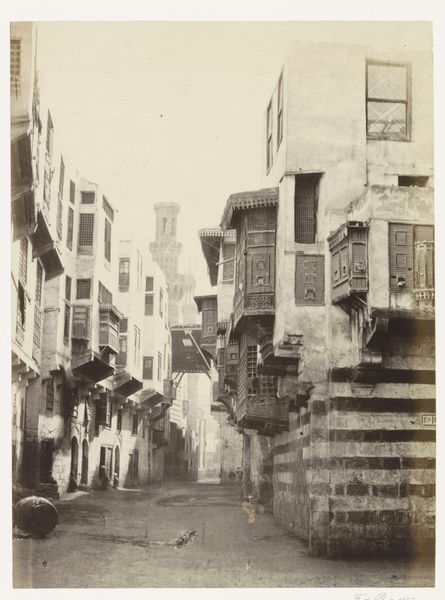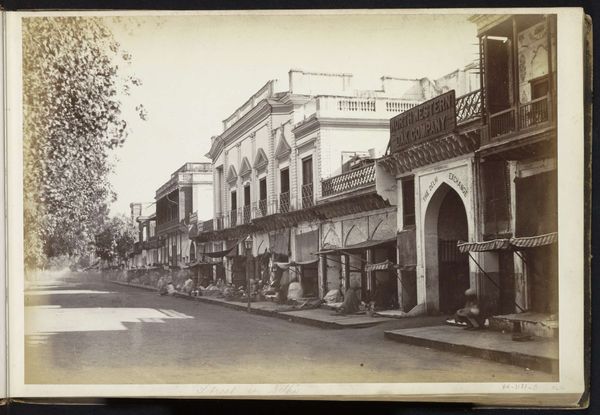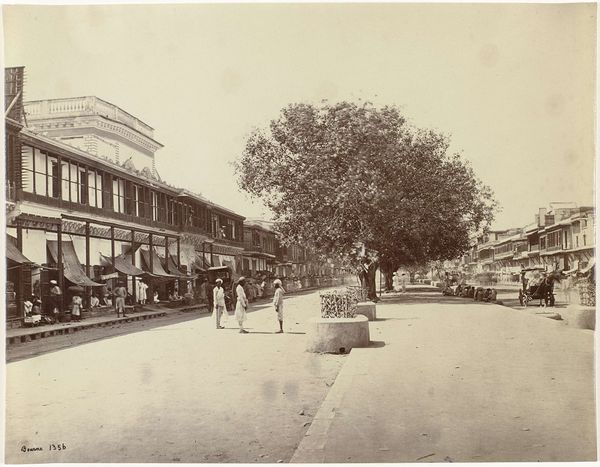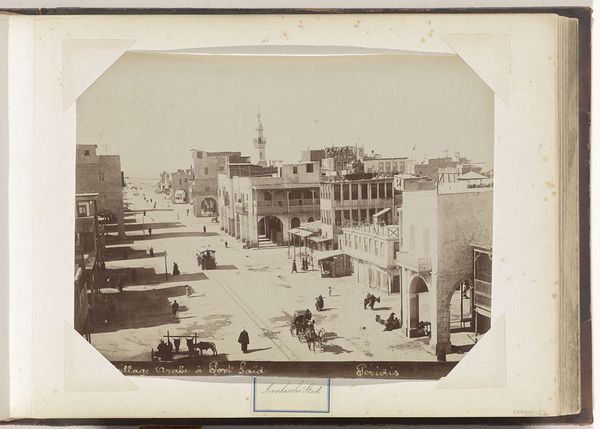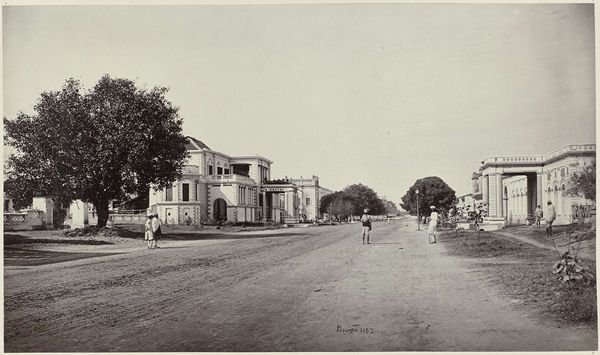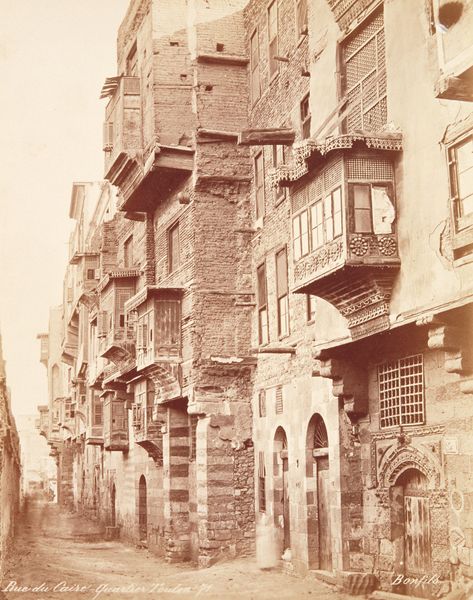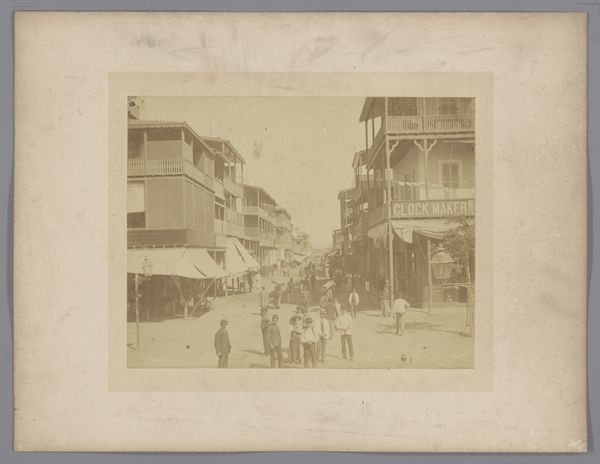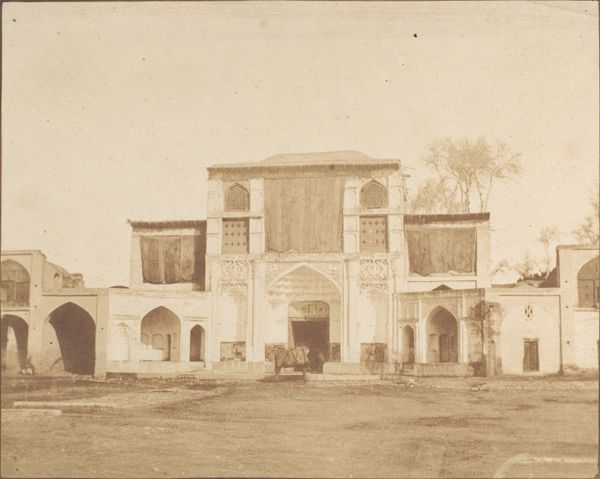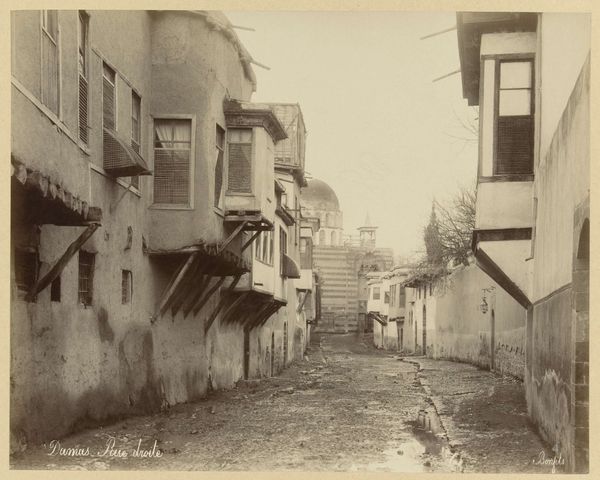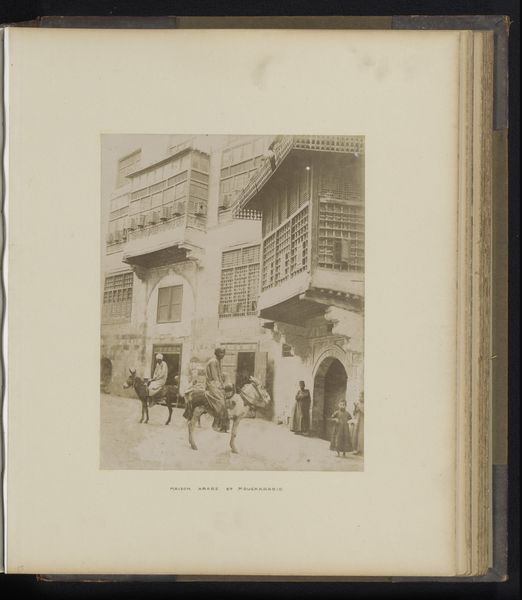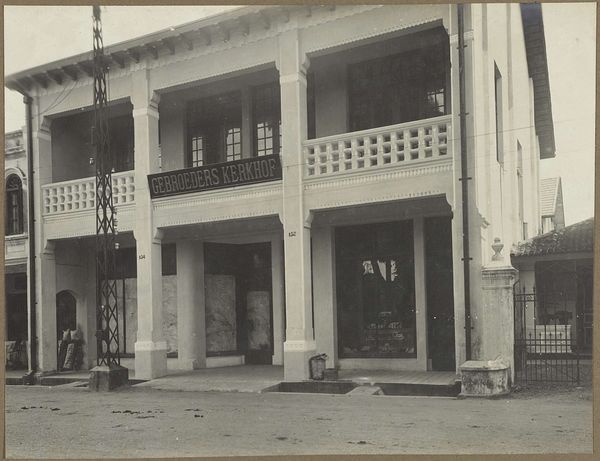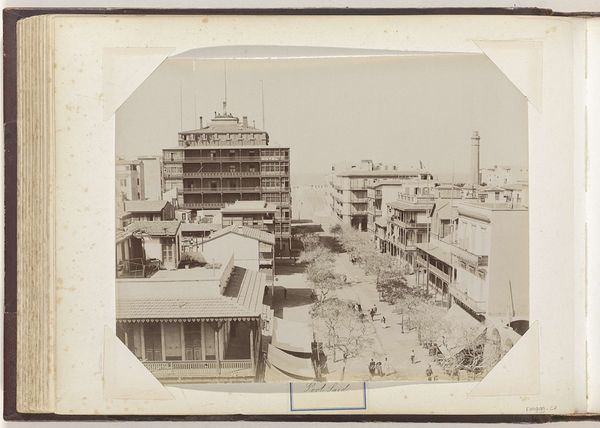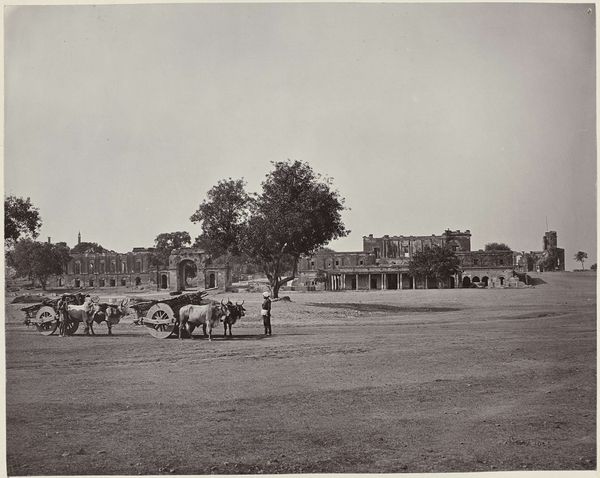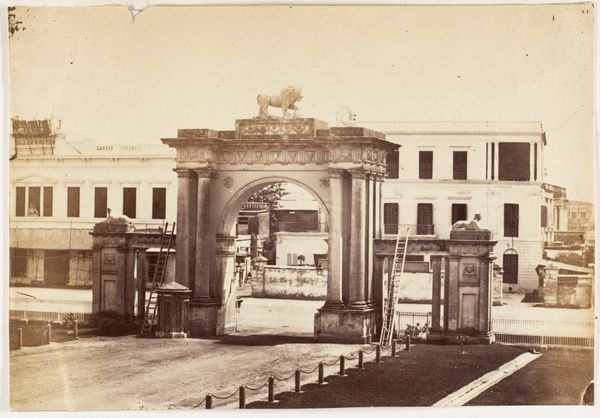
photography, gelatin-silver-print
#
print photography
#
archive photography
#
photography
#
historical photography
#
orientalism
#
gelatin-silver-print
#
19th century
#
cityscape
#
street
Dimensions: height 165 mm, width 215 mm
Copyright: Rijks Museum: Open Domain
Curator: This is Francis Frith's photograph, "Straat in het Azbakeya-district in Caïro," taken before 1862. A gelatin silver print capturing a slice of life in Cairo's Azbakeya district, part of our collection here at the Rijksmuseum. Editor: Dusty, almost sepia-toned, makes me think of memories clinging to the edges of something faded. A bustling street…frozen. Feels suspended in time, somehow melancholic despite the implied activity. Curator: Absolutely. The choice of the gelatin silver process, common in the mid-19th century, lends that warmth. It’s remarkable how Frith used then-new photographic techniques to capture not just the scene, but also a specific era. Notice the play of light and shadow, creating a rich visual tapestry. Streets weren’t just places, they were stages for human dramas. Editor: Stages indeed! I see these architectural details - the overhanging balconies almost like watchful eyes. Gives me a claustrophobic yet intimate feeling, a little voyeuristic too, like we are unseen observers to a private world, and it reminds me of "Rear Window". Those children are totally posing, maybe for the European gaze? Curator: Frith was working within a colonial context. His works were often presented as exotic visions of the "Orient", a constructed idea more than a mirror of reality. You see that repeated use of certain symbols: the narrow streets, the ‘native’ dress, which helped reinforce this Western perception. This work speaks less to pure representation and more about projecting power relationships through an aesthetic lens. Editor: I get it! But, even understanding the historical context, I still feel pulled in by its mystery. What happened to those children, those buildings? Is there something universal in that timeless composition beyond its politics, you know? Curator: That's precisely why this image is so compelling! Despite its complex past, it also encapsulates the human story – childhood, community, life simply unfolding, oblivious to our later interpretations. The lasting allure, in essence, speaks to layers beneath the orientalist facade: timeless echoes, even dreams. Editor: Layers upon layers. Like peeling away years from a photograph and finding, surprisingly, ourselves looking back. Curator: A shared human story whispered through time, preserved in silver and light.
Comments
No comments
Be the first to comment and join the conversation on the ultimate creative platform.
